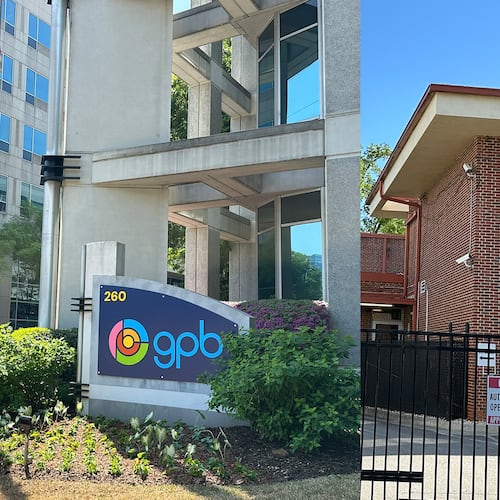STORY SO FAR
Paulding County and and a private company, Silver Comet Terminal, last year announced a plan to make the Paulding airport usable for airline operations — potentially turning it into metro Atlanta’s second commercial airport. Silver Comet, which would manage the airport’s small terminal and other operations, said it would seek an airline to provide limited service to leisure destinations. The plan drew fire from some Paulding residents who raised noise and congestion concerns. Delta Air Lines, the biggest carrier at Hartsfield-Jackson International, also said it opposes any second airport. Paulding Commission chairman David Austin, who backs the airport plan, has publicly accused Delta of orchestrating legal challenges.
As Paulding County residents battle a plan to commercialize their county’s airport, county officials are going around the opposition — and dipping into tax dollars — to keep the project moving.
The county commission recently approved using the general fund to pay for a taxiway widening project expected to cost the county nearly $2 million. That was after a bond issue intended to finance the work was held up by a court challenge by opponents, leaving no way to pay for grading that had already started.
“I’ll vote to fix the mess you got out there,” said an exasperated Tommie Graham, a commissioner who has generally favored commercialization. “But my patience has run very thin.”
The move came about five months after county leaders and a private company went public with their plan to bring airline service to Paulding Northwest Atlanta Airport. Though they say the service would be limited, it could create a long-discussed “second airport” for the region.
Residents who oppose the Paulding plan have sought to block or slow work needed to make the airport usable by full-sized airliners. They also have criticized the county airport authority for hatching the plan without public input and refusing to take public comments at its meetings.
This month the authority set a policy that allows public comment but requires residents to apply in advance to speak, and reserves the right to decline if the topic is not deemed pertinent.
One project needed for airline operations is taxiway expansion, which the airport authority moved ahead with before the bond financing — normally routine — was completed.
Airport director Blake Swafford said the partly-finished widening work was a safety issue because pilots of small planes that use the airport don't have access to the full taxiway and must "back-taxi" down the runway.
“It is not the safest of conditions,” Swafford said.
He asked the commission to take over the contract to finish the widening — expected to cost the county about $1.9 million. It’s also expected the Federal Aviation Administration will eventually reimburse the money, however it is financed.
The five-member county commission to approve the measure, though Graham and one other member voiced concern.
“They should have never started that project without having money in hand,” said commissioner Todd Pownall. “The taxpayers should not be bailing them out because they did not do things correctly.”
Swafford acknowledged that “in hindsight, certainly we could have stopped the project before the bond validation was done.”
“The thought that the bond (issue) would be challenged never crossed our minds,” Swafford said. After county and airport authority approval, “generally it’s a done deal.”
Graham told Swafford he would not vote for a separate taxiway extension that’s also planned to prepare for airline operations. That and an airport fire station are among projects on hold until an environmental assessment is done.
Both Graham and Pownall said they think the airport authority should get the money for the taxiway work from the company it has partnered with for the commercialization, Silver Comet Terminal Partners. Silver Comet’s Brett Smith last year expressed a willingness to pay for the project if necessary.
But Swafford said the project would lose eligibility for FAA reimbursement if an entity other than the county or the airport authority pays.
Swafford and Smith, along with commission chairman David Austin, are the main champions of the commercialization idea, saying it will not only bring limited airline service but also draw related aviation businesses to the lightly used airport.
Opponents, many of whom live near the airport, say the plan could lead to more noise and congestion than ever envisioned.
The funding snarl for taxiway work also has prompted an attempt to change a state law.
Before turning to the county for money out of the general fund, airport officials got a $1 million loan from the Paulding County Industrial Building Authority to start the work. Swafford heads both authorities.
That, too, was challenged in court by residents, whose attorney argued the building authority can fund projects like factories and processing plants, but not airport taxiways.
After a judge voiced concerns about the authority’s powers, Paulding airport authority attorney Tom Cable asked State Rep. Howard Maxwell, R-Dallas, to introduce legislation to change wording in the state constitutional amendment that created the building authority. Maxwell issued notice in early February that he intended to do so. The outcome of that issue could determine whether the building authority can issue loans in the future for airport work.
Pownall criticized the move to change the law in the middle of a court case, saying it wasn’t discussed with other county officials including commissioners who vote to fund the authority with taxpayer dollars.
On Tuesday, after learning that a draft of the legislation had been drawn up weeks earlier without their knowledge, commissioners voted 4-1 to table a measure supporting the legislation. Pownall said he thinks the wording would give the authority “way too much freedom and power.” adding that when things go wrong, “it comes back to us.”
About the Author
Keep Reading
The Latest
Featured



